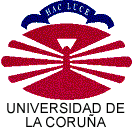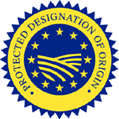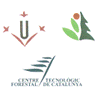|
Appellations of origin and brands
DOLPHINS: Development of Origin Labelled Products:
Humabity, Innovation and Sustainability (EU)
Filières innovantes, savoir-faire locaux
et partenariat euroméditerranéen
Marketing Red meat in the European Union: Extending
the Options
Study of the total quality strategy in food products:
the case of fresh beef
|
|
Appellations of origin
and brands
|
|
|
Aim of the project :
This research intends to bring a general updated view of quality-wine
sector, trying to identify evaluations and perceptions of winegrowers
and winemakers, referring to the stategies of trademarks and appellations
of origin, in order to bring a deeper knowledge about the sector
and to give important information about consumers' behaviour that
permits to define a better management of trademarks and of marketing
generally speaking. Furthermore, this research studies the variable
implication and its importance, as well as how it can affect the
relevant attributes within purchase decision.
Due to the high level of competitiveness that the
wine market is going through, these evaluations can serve as a basis
for the companies to develop several marketing activities or marketing
policies aiming at strengthening the points with possible deficiencies
concerning the management of their trademarks.
In order to achieve these objectives, we performed
a research among wine company-heads, buyers and usual quality-wine
consumers. Applying multivarying analysis and different average
contrast tests to study hypotheses, thus getting more relevant results,
we observed that, depending on the companies' level of production,
trademark strategies differ in the case of different production,
and we could check that a minimum of companies commercialize products
with distributors' trademarks.
With the research performed, we've shown that the
knowledge of the level of involvement is important because it creates
variations of the attributes which are taken into account when chosing
a wine with defined characteristics; and also that the level of
evaluations differ much from one to the other.
|
Program type:
Regional Project (Galicia)
Source of founding:
Xunta de Galicia
Starting date: 1st Oct 2000
Duration: One year and a half
|
University
of A Coruña
Faculty of Economics - Economic analysis Department
and Business Administration
Address : Universidad
de La Coruña
Departamento de Analisis Economico
Area de Comercializacion e investigacion de mercados
Monte da Zapateira. 15071 La Coruña - Spain
|

|
Work of the Institute about this project:
|
|
Scientific Responsible in the Institute: A Zapateira,s/n
- Ph: +34 981 167050, 2532 - fax: +34 981 167070 - e-mail: lbello@udc.es
|
|
Staff Involved: Ronald Bolaños Taleno
|
|
Student Involved: Domingo Calvo Dopico (Phd) -
Ph: +34 981 167050, 2482 - Fax: +34 981 167070 - e-mail: domin@mail2.udc.es
|
|
Scientific partners:
|
|
Professional partners:
|
|
Expected results:
Depending on the companies' level of production, trademark strategies
differ in the case of different levels of production, and we could
check that:
The less size of the firms, the more important the role of the
appellation of origin will be
Another hypothesis checked is that price is not a good indicator
of objective quality for wines, even though this is still used as
such, in particular by those less involved and those with less information
about this product.
With the research performed, we've shown that the knowledge of
the level of involvement is important because it creates variations
of the attributes which are taken into account when chosing a wine
with defined characteristics; and also that the level of evaluations
differ much from one to the other.
|
|
|
|
DOLPHINS:
Development of Origin Labelled Products:
Humabity, Innovation and Sustainability
|

|
|
Aim of the project
The general aim of the
Concerted Action DOLPHINS is to ease and strengthen exchanges of
the scientific results of the researches conducted in European countries
on origin labelled products (OLP). This has to be achieved by means
of :
- the setting-up of a network of scientists involved in research
on OLPs,
-
the activation of dissemination instruments
in order to meet the needs of citizens, policy-makers, researchers,
firms and all the other operators involved in OLPs.
e-mail : webmaster@origin-food.org
http://www.origin-food.org
|
Program
type: Concerted action financed
by the fifth framework of the European Community for the research,
technological development and demonstration activities (1998-2002)
Starting date: 1st december 2000
Duration: 3 years |
SIA
DGA - Zaragoza
Department
of agro-food research - Unit for agricultural economic
Address :
Diputacion General de Aragon, 176, Carretera de
Montana
Apartado 727, 50 080 ZARAGOZA, Espana
Ph : 34 976 576 361 - Fax : 34 976 575 501
e-mail : lmalbisu@aragob.es
http://www.aragob.es/agri/agri.htm
|

|
|
Work of the Institute about this project:
|
|
Scientific Responsible: Luis Miguel
Albisu
|
|
Researchers working on the project:
|
Public
University of Navarre- Department of Business Administration
Address :
Campus de Arrosadia, 31 006 PAMPLONA,
Espana
Ph : 34 948 169 394 00- Fax : 34 948 169 404
e-mail : maricruz@unavarra.es
http://www.unavarra.es
|

|
|
Title of the work of the Institute about this project:
|
|
Scientific Responsible: Ana
Isabel Sanjuan
|
|
Researchers working on the project:
|
University
of Lleida - Agricultural Engineering School
Address :
ETSEA, Edifici 1, Rovira Rourre, 177
25 198 LLEIDA , Espana
Ph : - Fax :
e-mail : colom@aegern.udl.es
http://www.udl.es
|

|
|
Work of the Institute about this project:
|
|
Scientific Responsible: Antonio
Colom-Gorgues
|
|
Researchers working on the project:
|
|
Scientific and professional partners:
- INRA - UREQUA8, avenue René Laennec -
72000 Le Mans - France
- CRITT CRISALIDE8, avenue René Laennec
- 72000 Le Mans - France
- INRA - ESR/ETIC - BP 27 - 31326 Castanet Tolosan
- France
INRA - LRDEQuartier Grossetti - BP 8 - 20250 Corte - France
- 10, rue des Arènes - 72000 Le Mans
Università di Parma - Istituto di Economia Agraria e ForestaleDipartimento
di EconomiaVia Kennedy 6 - 43100 Parma - Italia
- Università di Verona - Dipartimento Economie
Società ed IstituzioniSezione Politica Economica Agraria
- Via dell'Artigliere, 8 - 37100 Verona - Italia
Centro Ricerche produzioni animali (CRPA)Corso Garibaldi, 42 -
42100 Reggio Emilia - Italia
- Università di Firenze - Dipartimento
di Scienze EconomicheVia Curtatone, 1 - 50123 Firenze - Italia
- SRVA - Avenue Jordils, 1 - CP 128 - 1000 Lausanne
6 - Swtizerland
ETHZ - Institut d'Economie Rurale - Antenne Romande - Génie
RuralGR Ecublens - 1015 Lausanne - Switzerland
- Université de Lausanne - C/o OIC - CP
- 1000 Lausanne 6 - Switzerland
Association suisse pour la promotion des AOC & IGP - 1936
Verbier Village - Switzerland
- Technische Universität Munchen-Weihenstephan
- Department für Wirtschafts-und Sozialwissenschaften - Fachgebiet
für Marktlehre der Agrar- und ErnährungswirtschaftAlte
Akademie 14 - 85354 - Freising - Deutschland
- Diputation General de Aragon - Servicio de Investigacion
AgroalimentariaUnidad de Economia Agraria176, Carretera de Montaña
- Apartado 727 - 50080 Zaragoza - Espana
- Universidad de Lleida - ETSIA - CTFCSolsona
- Edifici 1 - Rovira Rourre, 177 - 25198 Lleida - Espana
- Universidad Pùblica de Navarra - Departemento
de Gestion de EmpresasCampus de Arrosadia - 31006 Pamplona - España
- University of Newcastle - Department of Agricultural
Economics and Food Marketing (AEFM) - Kings Walk - Newcastle Upon
Tyne, NE1 7RU - UK
- University of Edinburgh - Institute of Ecology
and Resource Management (IERM)Edinburgh School of Agriculture
- West Mains Road - EH9 3JG Edinburgh - UK
- Fondation Universitaire Luxembourgeoise - SEED185,
avenue de Longwy - 6700 Arlon - Belgium
- University of Helsinki - Department of Economics
and ManagementPO Box 27 - Latokartononkaari 9 - Viikki - 00014
University of Helsinki - Finland
- Instituto Nacional de Investigação
Agraria - Estaçao Agronomica Nacional - Departamento de
Estudos de Economia e Sociologia Agrarias (DEESA)Av. da Republica
- 2784-505 Oeiras - Portugal)
- Universidade de Tras os Montes e Alto Douro
(UTAD)Departemento de Economia e SociologiaAvenida Almeida Lucena
1- 5000 Vila Real - Portugal
- Direcção Regional de Agricultura
de Entre Douro e Minho - Divisão Produção
Animal - Quinta do Pinho - 4800-875 San Torcato - Portugal
|
|
Expected results:
|
|
|
|
Filières innovantes,
savoir-faire locaux et partenariat euroméditerranéen
|
|
|
Aim of the project :
The aim is to valorise, using partnership strategies between
research groups and local economic and social agents, the existing
know-how in several typical Mediterranean productions (olive oil,
wine, cheese, citrics, ceramics, textile…) from 13 countries.
Another important aim is the co-operation between the UE countries
and the South and Eastern Mediterranean countries.
|
Program type: European
MEDA Program, Héritage Project
Source of founding: European Union
and local financing
Starting date: April 2002
Duration: 3 years
|
CSIC - Institute of Economy
and Geography
Instituto de Economía y Geografía
Address :
Pinar, 25 - 28006 Madrid, Espana
Ph : +34 914 111 098 - Fax: +34 915 625 567
e-mail : jsanz@ieg.csic.es
http://www.ieg.csic.es
|

|
Work of the Institute about this project:
"Olive oil" international subsector responsible
and local research group responsible for two Spanish olive oil
Designations of Origin ("Montes de Toledo" y "Sierra
Mágina").
|
|
Scientific Responsible in the Institute: Dr. Javier Sanz
Cañada, CSIC
|
|
Staff Involved: Dr. Manuel Rodríguez-Zúñiga
|
|
Students Involved: 1 PhD student for the three years and
2 pollsters for the first year
|
|
Scientific partners: Dr. Manuel Parras Rosa (Universidad
de Jaén), Spain
|
|
Expected results: Not yet
|
|
|
|
Marketing Red meat in
the European Union: Extending the Options
|
 |
|
Aim of the project :
Demand for red meat has been declining over the past decade
in Europe. Low product credibility following health scares (BSE,
E. coli toxins, hormone additives, etc.) have negatively affected
consumer demand and confidence. This project, carried out in Scotland,
Spain, Britain, Italy and France, seeks to build the current questioning
and reactionary process on the part of consumers into a credible
quality assurance system and fresh marketing strategy for meat and
meat products.
The main objective of the project is to stimulate markets for red
meat and meat products by the delivery of a system of quality assurance
across the all stages of the filière (chain from production
to consumption). The system will be driven by consumers' tangible
and intangible consumer wants and demands, and will involve improving
knowledge of i) the consumer, ii) the markets and iii) the industry,
and how these interact to affect red meat demand and sales.
Specific objectives of the project are:
- identification of specific factors which have altered consumption
and purchasing patterns of meat across the Community;
- examination of the effectiveness of checks along the filière,
how these checks have been integrated and policed and what additional
measures might also be required;
- evaluation of the cost/effectiveness of improvements already
instituted in the industry and alternative control options for
quality assurance;
- development of a strategy to improve communication of quality
assurance between consumers and the industry;
- exploitation of market segmentation opportunities, nationally
and at EU level for meat products, in particular quality meat
products which deliver particular attributes demanded (e.g. regional
origin labels, environmental friendly, grass fed, etc.).
http://www.ierm.ed.ac.uk/qualityredmeat/ |
Program type:
CRAFT (Technological Stimulation for
the SMEs)
Source of founding:
European Commission
Starting date: February 1999
Duration: 2 years
|
SIA
DGA - Zaragoza
Department
of agro-food research -
Unit for Animals Production Technology
Address :
Diputacion General de Aragon
176, Carretera de Montana
Apartado 727, 50 080 ZARAGOZA, Espana
Ph : +34 976 716300 - Fax : +34 976 716335
http://www.aragob.es/agri/agri.htm
|

|
Work of the Institute about this project: Consumer research
and joint co-ordinator.
|
|
Scientific Responsible in the Institute: Alberto Bernués
Jal
Unidad de Tecnología en Producción
Animal
Servicio de Investigación Agroalimentaria
Gobierno de Aragón, Apdo. 727, 50080 Zaragoza, Spain
Tel. 00-34-976-716439 - Fax 00-34-976-716335 - e-mail: abernues@aragob.es
|
|
Staff Involved: Alberto Bernués Jal
|
|
Scientific partners:
- University of Edinburgh (UK),
- Royal Agricultural College (UK),
- INRA (France),
- University of Zaragoza (Spain),
- Centro Ricerche Produzioni Animali (Italy)
|
|
Professional partners:
- Quality Meat Scotland (UK),
- Cotswold Sheep Group (UK),
- Coopérative Ovine des Pyrénées Orientales
(France),
- Carnearagón (Spain),
- Criadores de Carne Natural de la Alta Ribagorza (Spain),
- ProInCarne (Italy), CONAZO (Italy).
|
|
Expected results: The project work was divided into 5 work-packages:
- The industry: a critical assessment was made of the production
and processing of beef and lamb, and their meat products, in relation
to existing markets and demand. Special focus was paid to the
way the industry understands quality of meat and how quality and
safety is managed and guaranteed.
- The markets: the effectiveness of local, regional and national
markets for red meat and quality red meat products were investigated.
The management of quality in the retail point and the way quality
is expected from providers and delivered to consumers were specifically
studied.
- The consumer: the increment and improvement of knowledge of
the consumer and quality meat consumption, to understand trends
and influences in purchasing behaviour so that evolving trends
can be anticipated and exploited, was the objective of this work-package.
Results on purchasing reasons, quality concept and expectations
of consumers, sources of information on quality, labelling preferences
and opinions on Quality Meat Products (PDO, PGI, quality brands,
etc.) were obtained.
- World context: industry, marketing and consumer issues in the
project were compared with theoretical and on-the-ground systems
inside and outside the EU.
- New strategies: new strategies and models for marketing red
meat and red meat products were developed from the information
gathered. Guidelines and recommendations for the participating
SMEs and industry generally, as well as strategies for the development
of new market opportunities, were produced. Also recommendations
for European food authorities were obtained.
|
|
|
|
Study of the total quality strategy
in food products: the case of fresh beef
(Estudio sobre la estrategia de
calidad integral en los productos alimenticios: el caso de la carne
fresca de vacuno)
|
|
|
Aim of the project :
The aim of the project is to analyze the process of achieving
total quality, carried out by producers, distributors and the public
sector. Quality labels have been created as the result either of
horizontal integration among producers (e.g. PGI Ternera de Navarra
or Ternasco de Aragón), vertical integration (as the CLARA
program), or own distributor brands. With respect to producers and
distributors, the main objective is to investigate the factors underpinning
the choice of the quality policy, their economic results and the
strategy preferred. Regarding consumers, the objective is to investigate
their degree of awareness about food safety, food quality labels
and valuation of these labels.
|
Program type:
Source of founding: CICYT. Spain.
Starting date: 2000
Duration: 3 years
|
Agricultural
Economics - Department of Business Administration
Public University
of Navarra
Address :
Campus de Arrosadia, 31 006 PAMPLONA,
Espana
Ph : +34 948 169 394 00 - Fax : +34 948 169 404
e-mail : maricruz@unavarra.es
http://www.unavarra.es
|

|
Work of the Institute about this project:
Analysis of price transmission in the beef chain; analysis of
consumer behaviour toward labelled beef
|
|
Scientific Responsible in the Institute: Mercedes Sánchez
Department of Business Administration, Public University
of Navarra
Campus de Arrosadía, phone: +34 948 16 93 96 fax: +34 948
16 94 04, e-mail: mersan@unavarra.es
|
|
Staff Involved:
|
|
Students involved(PhD, Ms): Ramo Barrena
Department of Business Administration, Public University
of Navarra - Campus de Arrosadía
ph: +34 948 16 93 94 - fax: +34 948 16 94 04 - e-mail: maria.barrera@unavarra.es
|
|
Scientific partners: Agricultural Economics Unit, Agrofood
Research Service (SIA-DGA), Government of Aragón, Zaragoza
(Spain)
|
|
Expected results:
Preliminar results suggest that consumers view origin labels as
food safety indicators. Likewise, the label is becoming more important
than other attributes, such as price or intrinsic quality cues in
the consumer choices. However, the importance attached to the label
depend greatly on the product and the personality traits. For instance,
in beef, more negatively affected by food scares, the preference
for labelled meat is clearly greater than in lamb. Also, those consumers
more concerned about food and health issues favour the labelled
meat.
|
|
|
- Link toward presentation of the Spanish Research Institutes working
on OLP's
|







